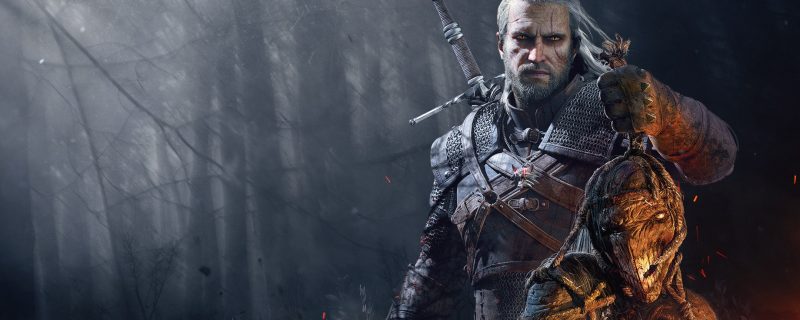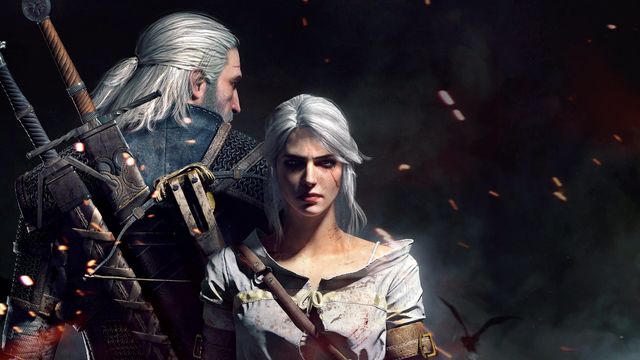
Witcher Geralt was born in the December 1986, when his “father,” Andrzej Sapkowski sent his first story to a competition organized by Fantastyka, a Polish science-fiction and fantasy magazine. The text, called simply The Witcher, won third prize and gained a lot of attention.
More short stories followed, soon to be released as a series of books – first as “The Witcher”, then updated and containing more stories as “Sword of Destiny” and “The Last Wish.” But fans always want more, and Sapkowski was not yet done with the story. An epic saga was created, covering five books, and it conquered the hearts of many, gaining generations of devoted followers. But “Lady of the Lake”, the last instalment, brought the story to a close. Geralt was no more.
It’s no surprise that the first reports of the Witcher story being turned into a game received mixed reactions from the saga’s fans. After all, Geralt was (presumed) dead, the saga was complete, so how were they going to resurrect him? Would it be a prequel or a sequel? Would the game take place during the events of the books? How would it fit the lore? And CD Projekt Red as devs? Ok, they were a respected company known for flawless localizations, but developing a game? And not just any game, but one based on Witcher?
Questions, doubts and, indeed, hopes accompanied one of the most anticipated games of its time. But fortunately, CD Projekt Red delivered. Gone were the doubts as to who the king of this scene is. The Witcher brought all the best elements from the saga and created a universe that mesmerized millions of gamers around the globe. The experience was satisfying for fans of the lore but it also did not exclude “newbies” – they could dive into the story without feeling neglected. The game outstripped the books in terms of global popularity. There can be no doubt that the teams of developers, artists, and editors had all definitely succeeded.
But what about another crucial part of gaming world, the score?
The Witcher
The task of creating the musical side of the experience for the first game was given to Paweł Błaszczak and Adam Skorupa. Additional performers included Karolina Cel on solo violin, and vocals by Iwona Malczewska. Adam Skorupa provided vocals for one of the songs as well.
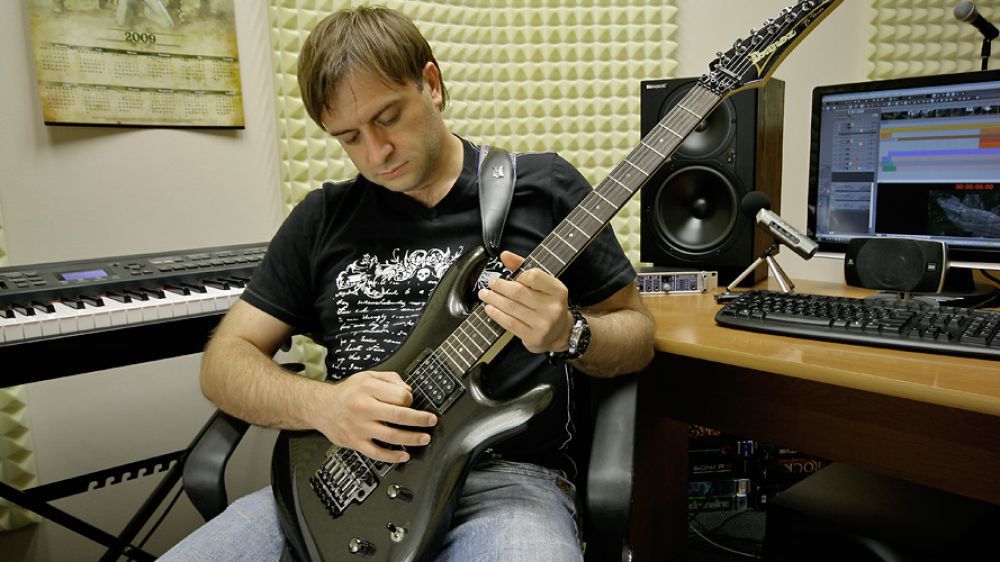
Born in 1971, Paweł Błaszczak had been a fan of game music since the day he bought a Commodore 64 in 1982, which he used for his first compositions. Since 1997 he has been a professional composer, and his works include music for Call of Juarez, Dead Island, Dying Light, Mission: Humanity and many more. He is also known for creating the scores for EVE Online trailers and award-winning animations – The Ark by Grzegorz Jonkajtys and Cinematograph by Tomasz Bagiński.
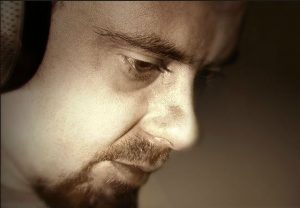 Adam Skorupa was born in 1975. He started his musical journey with demoscene. His achievements as a music designer and sound director include games like Clash, Archangel, Painkiller, Wacuś the Detective, Infernal, Hatred and more. He has also created the music for advertisements (like Duracell) and trailers for EVE Online. He was the lone author of the complete sound framework and, together with Paweł Błaszczak, the co-author of the score for The Ark.
Adam Skorupa was born in 1975. He started his musical journey with demoscene. His achievements as a music designer and sound director include games like Clash, Archangel, Painkiller, Wacuś the Detective, Infernal, Hatred and more. He has also created the music for advertisements (like Duracell) and trailers for EVE Online. He was the lone author of the complete sound framework and, together with Paweł Błaszczak, the co-author of the score for The Ark.
The task looming before those two gentlemen was huge – game devs were able to base their work on stories written by Andrzej Sapkowski. Błaszczak and Skorupa had to create the sounds from scratch, with no actual reference basis, and only a general idea of what the Witcher’s lore was based on – predominantly Slavic and Nordic themes. This was something familiar to the saga’s fanbase, but completely new for Western countries. They also had to define Geralt’s musical identity. Did they succeed? The first track on the album, Dusk of a Northern Kingdom, confirms that they did indeed.
Their creations echo in all 3 games. And even though Witcher 1 was released way back in 2007, it is still one of the most beloved soundtracks among gamers. This could be achieved thanks to the backgrounds, talent and creativity of both composers. Just compare Skorupa’s Tales of the Witcher, which set the tone for the whole game and could be heard in various combinations throughout the gameplay to a joyful Catch me if you can:
Błaszczak’s talent can be heard on a number of tracks, though for me two stand out particularly – River of Life and his Evening in the Tavern:
Both composers delivered scores that not only perfectly suit the game, its locations and dynamics of the gameplay, but are also mesmerizing stand alone pieces. It’s impressive how two composers can create unique sounds that show their individual talents, but also go well together, creating a masterpiece. The finest example of their seamless collaboration are the tracks Kingdom and Betrayal, The Lesser of Two Evils and The Princess Striga, which are simply epic.
The soundtrack for Witcher 1 garnered many awards, and gave us something new to boot – the Enhanced Edition included an “Inspired by” album, which featured artists like Lady Aarp, Habakuk, Me, Myself and I, Beltaine or Skowyt and their take on Geralt’s world. Vader’s Sword of the Witcher featured on this album and became the official music video promoting the game while The Witcher Theme stole the hearts of countless fans.
The album’s final track, Trial of the Herbs, was written by Marcin Przybyłowicz, a recipient of a young talents scholarship, Creative Valley, which was funded by a Polish national TV channel. It was not the last time his name would be linked to the Witcher franchise, but we’ll get back to that later.
The soundtrack for the first part of the Witcher trilogy contains 29 tracks. With each one it paved a path for future instalments but also fully succeeded in defining Geralt’s world musically. 10/10 would listen again (and I actually do).
The Witcher 2: Assassins of Kings
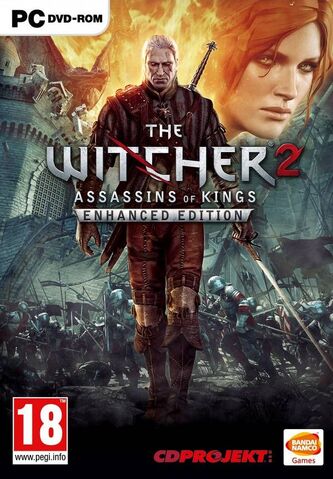
Being the middle child is hard. You want to be different than your older brother, and set your own path. In the case of Witcher 2: Assassins of Kings, the task of creating the sounds was complex – the Witcher 1 soundtrack had been done, so the general direction was known. At the same time, the game had changed, becoming more complex. The gameplay had moved from lore and legends to more political subjects. The intrigue and dangerous plots were in place, as was a fanbase with high expectations. The soundtrack needed to reflect that. Once again Adam Skorupa was tasked with creating the sounds for the game, and this time he joined his forces with Krzysztof Wierzynkiewicz, who was also part of the music department for all 3 games. Additional performers included Aleksander Grochocki (guitars) and Iwona Malczewska (vocals).
:format(jpeg):mode_rgb():quality(40)/discogs-images/A-2254189-1409431152-3659.jpeg.jpg) Born in 1974, Krzysztof Wierzynkiewicz had been a fan of music since his early days, and had scored his first successes by the time he was 10. Active on Amiga Demoscene, he gained widespread recognition and added some awards to his collection. A freelance artist since 2000, he has worked in numerous genres and styles—and on games, including Shadow Warrior 2, Hatred, Juju, Dead Island, Call of Juarez, Runes of Avalon and many more. Add to the mix TV productions, adverts, movies, audiobooks and movie trailers For EVE Online and you begin to see how well-rounded his contribution has been.
Born in 1974, Krzysztof Wierzynkiewicz had been a fan of music since his early days, and had scored his first successes by the time he was 10. Active on Amiga Demoscene, he gained widespread recognition and added some awards to his collection. A freelance artist since 2000, he has worked in numerous genres and styles—and on games, including Shadow Warrior 2, Hatred, Juju, Dead Island, Call of Juarez, Runes of Avalon and many more. Add to the mix TV productions, adverts, movies, audiobooks and movie trailers For EVE Online and you begin to see how well-rounded his contribution has been.
Witcher 2 had much more epic tracks, the sounds rawer and more brutal, perfectly fitting the game. The score was much more lyrical than its Witcher 1 counterpart, while the Western and symphonic themes ensured it was completely distinct from its predecessor. Big stories about fighting kingdoms demanded big sounds. One need look no further than the opening track for proof of that – Assassins of Kings, which Skorupa and Wierzynkiewicz co-wrote.
Here again Skorupa surprised me, pleasantly, with the beautiful A Watering Hole in the Harbor. With the soundtrack as a whole imbued with a feeling of immediate threat and incoming trouble, and the overall ‘vibe’ a dark one, this tracked proved a breath of fresh air.
Wierzynkiewicz’s talent is especially visible in the minimalistic yet complex track Sorceresses, and his The End is Never the Same is without a doubt one of my favorite pieces on the album.
The soundtrack for Assassins of Kings is a solid piece of music, completely different than the first part of the trilogy. Perhaps this is why I consider it to be the weakest instalment – it was hard for me to find the elements I know on this album, and therefore hard to fully immerse myself in the game and sounds. Don’t get me wrong, it is a good soundtrack and got a solid 8.5/10 points on my list; it’s just not very Witcher-y for me. It was just too heavy and loaded for my liking, while the first part was more spacious and daydream-friendly.
What also annoyed me was how hard it was to get a hold of a complete album – the basic edition of the game had 23 songs, and the Enhanced Edition 46. There were four additional tracks available for digital download, eight in an album available for preorder via one store. Only some of those tracks were available on the Enhanced Edition album. I like my music in one place, not to have to hunt for the tracks I am missing just because I don’t want to pay three times for the same item. However, tracks like In Temeria make the hunt worth your while, in a way…
The Witcher 3: Wild Hunt
The final part of the trilogy, brought the game to the next level, literally. Everything became bigger, faster, more dynamic. Also the type of promotion changed – CD Projekt Red dropped the occasional, tantalizing hint about what to expect before the game premiered. It’s be a picture here, a drawing there… and a developer diary which came with the track Geralt of Rivia, which had me in love with the game before it was even released.
The Witcher 3 Soundtrack: Wild Hunt took all the best elements from the first part and added to them the lesson learned from Assassins of Kings. It changed the known bits into something original, something attributed to only Wild Hunt, while at the same time bringing all the good elements – the freshness, spaciousness and the epicness from part 1. The music was once again redefined: we meet Ciri, an essential character for readers of the book and for the Witcher saga, bringing us back to the roots.
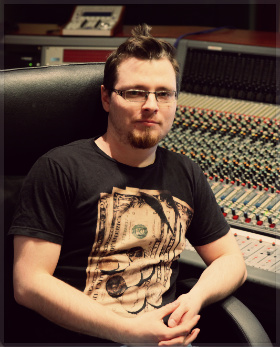 Marcin Przybyłowicz, mentioned before while discussing The Witcher’s “Inspired by” album, this time was introduced as main composer and music director, Mikolai Stroiński joined him as composer. Soundtrack consists of 35 tracks (as well as 11 for Hearts of Stone expansion, 25 for Blood and Wine). Additional performers include: Christina Bogdanowa, Katarzyna Bromirska, Joanna Lacher, Mikołaj Rybacki, Robert Jaworski, Amir Yaghmai, Jenny Takamatsu, Andrew Duckles as well as RED Witches Choir: Karolina Kuzia, Paulina Łukiewska, Karolina Niewęgłowska, Magdalena Oracz-Chomiuk, Agnieszka Patyk, Karolina Stachyra, Ewa Stiller, Agnieszka Szóstak, Daria Zawada.
Marcin Przybyłowicz, mentioned before while discussing The Witcher’s “Inspired by” album, this time was introduced as main composer and music director, Mikolai Stroiński joined him as composer. Soundtrack consists of 35 tracks (as well as 11 for Hearts of Stone expansion, 25 for Blood and Wine). Additional performers include: Christina Bogdanowa, Katarzyna Bromirska, Joanna Lacher, Mikołaj Rybacki, Robert Jaworski, Amir Yaghmai, Jenny Takamatsu, Andrew Duckles as well as RED Witches Choir: Karolina Kuzia, Paulina Łukiewska, Karolina Niewęgłowska, Magdalena Oracz-Chomiuk, Agnieszka Patyk, Karolina Stachyra, Ewa Stiller, Agnieszka Szóstak, Daria Zawada.
Przybyłowicz was born in 1985, his works include The Vanishing of Ethan Carter (as sound designer), Afterfall: InSanity and Ancient Space, as well as League of Heroes, Pet Pals: New Leash and many more. He also worked on ad campaigns and documentaries.
Mikolai Stroiński was born in 1979. He worked on games like Gwent, The Vanishing of Ethan Carter, Dark Souls 2, as well as tv series: Paradoks, Million Dollar Drop and Life on a Wire and movies: Hired Gun, Cats & Dogs: The Revenge of Kitty Galore or Miracle on Third Street.
Big game requires lots of sounds. The main theme was recorded by The Brandenburg State Orchestra in Frankfurt, directed by Bernd Ruf. The original Witcher theme composed by Adam Skorupa and Paweł Błaszczak was also present, in various adaptations. Przybyłowicz and Stroiński invited a Polish folk band, Percival, to collaborate on the score. The group specializes mainly in Slavic music and writes their own compositions that reference the viking era. They were assisted by Robert Jaworski, a multi-instrumentalist from the band Żywiołak. Instruments including the lute, hurdy-gurdy, renaissance fiddle, kemenche, mandolin and bowed gusli were used, creating unique sounds. The soundtrack was made by trying various tones and arrangements, as well as through improvisation, since most of the musicians were self taught and did not know the notes. To everyone’s surprise, this path too led to success.
What stands out on the album are the ambient sounds that draw together the story, action and surroundings. The world becomes real, f.ex. when the weather changes, so does the ambient. The sound is based on real sounds, so it’s natural and organic. The sound engineers went as far as recording sounds during a Battle at Grunwald recreation, so when you hear an arrow leaving the bow, it is the real sound. The main goal here was to make sure that if you close your eyes, you can still “see” what is going on on the screen.
The very first track on the soundtrack, The Trail, written by Marcin Przybyłowicz and Percival, is a knockout. And it only gets better.
My beloved and personal #1 track – Silver for Monsters – is everything I was looking for in a soundtrack for a game like Wild Hunt. Same with The song of Sword – Dancer. Both tracks perfectly suit the gameplay.
Stroiński’s brilliance can be heard in many tracks but Aen Seidhe and Commanding the Fury made the biggest impression on me and are a permanent part of my playlist.
Once again, just like with Witcher 1, we were also given the “Inspired by” album – CD Projekt Red organized an audio contest, with Marcin Przybyłowicz as part of the jury. Unlike Witcher 1, 15 of the entries were sadly released only as a Spotify playlist, rather than a stand-alone, downloadable album. Still, the creativity and talent of some of the people who took part in this competition amazes me. If Witcher didn’t already have brilliant composers on board, we wouldn’t have a problem finding someone to fill their shoes.
First prize went to Michał Juchno for his wonderful track Wild Heart:
For the dubstep track Killing Monsters, EM3S took second place, while Rich Douglas and his Fall of Novigrad took third. My personal favorite is Jeroen Hoogeveen’s Temeria Trip:
Witcher 4 please?
If I wasn’t already a huge fan of the games, I’d appeal to CD Projekt Red to make Witcher 4 just to get another musical journey like the ones it has already delivered. Making a masterpiece once is some part hard work and some part, perhaps, luck. Doing it twice, however, proves that it wasn’t about luck, but skills. Creating something mesmerizing three times in a row makes me a follower and leaves me begging for more. CD Projekt, please?
What about you? Which Witcher soundtrack made the biggest impression on you? Do you have a favorite track?





